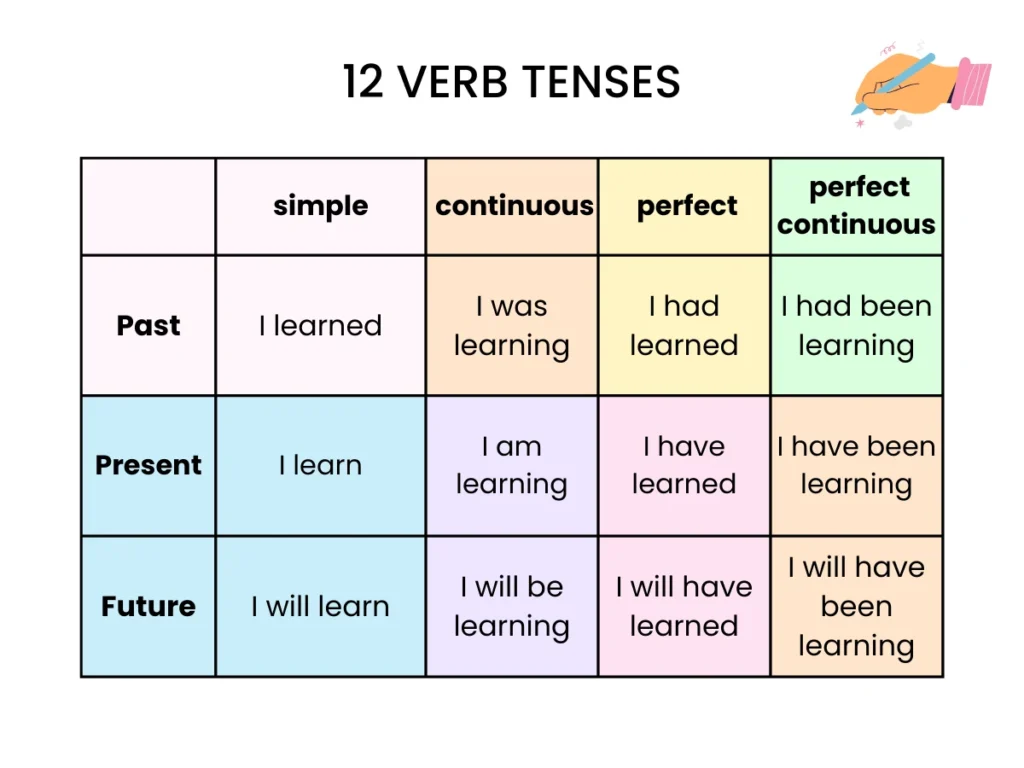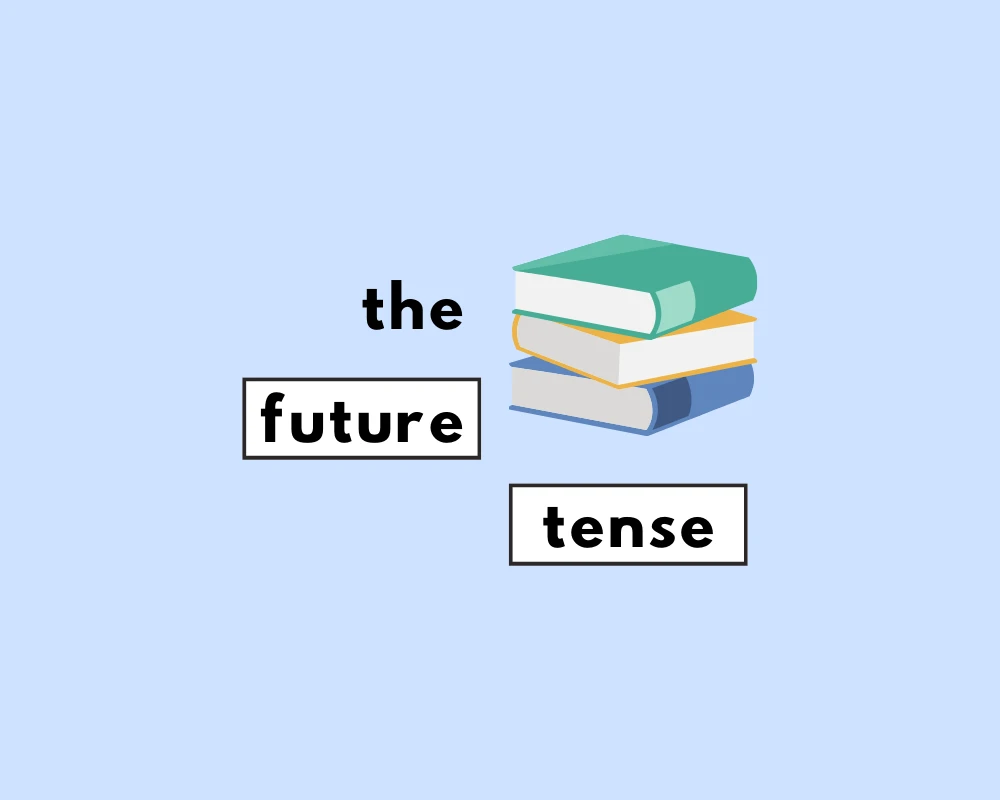Contents
Toggle
All about the future tense
How do you speak about something that will take place in the future in English? By using the future tense, of course! What’s the next question?
What are verb tenses?
Language, and tense (in particular) specify when actions took place, and at which point in time they did, or will occur.
To refresh our key terms: a tense refers to a point in time when something took place. It’s literally the “form of a verb showing time of an action or state”. Because of this, the way we spell and pronounce verbs vary by tense, (i.e., time when the action took place). This is what’s known as verb conjugation; the change verbs undergo to reflect when actions happen.
The principal tenses are the present, past and future. See the chart with sentences using the three main tenses:
| verb tense | sentence examples |
| present tense | She studies hard for her exams. |
| past tense | She studied hard for her exams. |
| future tense | She will study hard for her exams. |
12 verb tenses in English
Each main tense has 4 subtypes; which, in total, makes 12 tenses, (if my math serves me right, which it rarely does). The 12 tenses in English are:

- Simple present
- present continuous/progressive
- present perfect
- present perfect continuous
- Simple past
- past continuous/progressive
- past perfect
- past perfect continuous
- Simple future
- future continuous/progressive
- future perfect
- future perfect continuous
4 forms of the future tense
- simple future tense
- future continuous
- future perfect
- future perfect continuous
Currently, there are several generally accepted ways to indicate futurity in English, and some of them—particularly those that use will or shall as the most universal and widely used—are frequently described as future tense while some may argue these verbs serve both as present modal verbs and future tense markers.[4]
—Wikipedia, future tense.
Simple future
To form the simple future, pair will + [base form of verb]. We use the simple future tense to talk about events or states that haven’t happened yet, or something that’s expected to take place.
| sentences in the simple future (will + base verb) |
| I will eat dinner later this evening. |
| She will sing at the concert tomorrow night. |
| They will visit their grandparents next weekend. |
Future continuous
To form the future continuous, pair will + be + [present participle].
In general, we use present participles to show an event or action as ongoing, either in the past, present or future. When we want to convey actions that will be ongoing in the future, we communicate in the future continuous (or progressive) tense.
| sentences in the future continuous (will + be + present participle) |
| I will be finishing my homework before my friends came over. |
| She will already be eating breakfast by the time you wake up. |
| They will be leaving the party before I get there. |
Future perfect
To form the future perfect, join will + have + [past participle].
| sentences in the simple future (will + base verb) |
| I will have studied for 2 months before I take the exam. |
| She will have practiced the piano for weeks before the recital. |
| They will have waited in line for two hours by then. |
The future perfect tense denotes an action or event that will (or is reported to) begin in the future, and will continue up until another point also in the future. We form the future perfect tense by combining the modal verb will + auxiliary, have + the past participle form of the verb. The future perfect tense contextualizes the order in which future anticipated events will take place in.
Future perfect continuous
To form the future perfect continuous, pair will + have been + [present participle].
| sentences in the future perfect cont. (will + have been + present participle) |
| I will have been living my best life for two months in Italy by then! |
| They will have been working there for 15 years by next July. |
| When I turn thirty, I will have been playing piano for twenty-one years. |
The future perfect continuous is formed by joining will + have been + present participle: she will have been studying; they will have been practicing; we will have been waiting. The future perfect continuous describes an expected action or event that will begin in the future and continue up until another point in the future. In other words, the event will start and end at different points, both in the future.
Read more about verbs
- Forms of “To Be”
- What Are Auxiliary Verbs?
- What is the Present Tense? (Forms of the Present Tense)
- What’s the Present Perfect Tense?
- What is the Past Tense? (Forms of the Past Tense)
- What Are Verb Tenses? (Past, Present and Future)
- What’s a Participle? (Present Participle vs. Past Participles)
Sources
- Harper Douglas, “Etymology of tense,” Online Etymology Dictionary, accessed Feb 14, 2024, https://www.etymonline.com/word/tense.
- Wikipedia contributors. “Shall and will.” Wikipedia, The Free Encyclopedia. Wikipedia, The Free Encyclopedia. Web. 14 Feb. 2024.
- P.C. Wren and Martin’s English Grammar and Composition.










